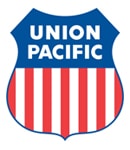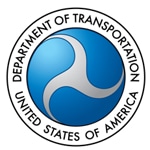
“We support job opportunities for Veterans who have served our country, but not only because it is the right thing to do, it also makes good sense,” said U.S. Transportation Secretary Anthony Foxx. “One of the most important, fastest growing employment sectors is for qualified commercial vehicle drivers and Veterans bring invaluable experience to the industry and can enter the workforce quickly.”
“We doubled the amount we have previously provided through this grant program because of the important role qualified commercial truck and bus drivers hold in moving our economy forward,” said FMCSA Acting Administrator Scott Darling. “The men and women who complete these commercial driver training programs also serve our country in a vital way by making safety their top priority every mile, every day.”
FMCSA awards CMV-OST grants to a variety of educational institutions that provide truck driving training, including accredited public or private colleges, universities, vocational-technical schools, post-secondary educational institutions, truck driver training schools, associations, and state and local governments, including federally-recognized Native American tribal governments.
The 2015 FMCSA grants announced today will provide training for hundreds of new students. The awards were made to the following organizations:
- California – West Hills Community College District, Coalinga, $199,460
- Georgia – Central Georgia Technical College, Macon, $146,771
- Maryland – Cecil College, North East, $101,825
- New York – Erie 2 Chautauqua Cattaraugus BOCES, Angola, $105,201
- North Carolina – North Carolina Department of Transportation, Raleigh, $200,000
- Ohio – Cuyahoga Community College District, Cleveland, $195,040
- Oklahoma – Central Technical Center, Drumright, $200,000
- Pennsylvania – Lancaster County Career & Technology Center, Willow Street, $194,811
- Pennsylvania – Northampton County Area Community College, Bethlehem, $134,400
- Pennsylvania – The Sage Corporation, Camp Hill, $198,504
- South Carolina – Orangeburg-Callhoun Technical College, Orangeburg, $197,399
- Texas – Alamo Colleges/ St. Phillip’s College, San Antonio, $196,680
- Virginia – Tidewater Community College, Norfolk, $199,879
The Commercial Motor Vehicle – Operator Safety Training Grant Program was established by Congress in 2005 through the Safe, Accountable, Flexible, Efficient Transportation Equity Act – A Legacy for Users (SAFETEA-LU), to expand the number of commercial driver’s license (CDL) holders possessing enhanced operator safety training to help reduce the severity and number of crashes on U.S. roads involving large trucks and buses.
In July 2014, FMCSA announced that the Military Skills Test Waiver Program had been expanded to include all 50 states and the District of Columbia.
Under this program, state licensing agencies have authority to waive the skills test portion of the CDL application for active duty or recently separated veterans who possess at least two years of safe driving experience operating a military truck or bus. Waiving the skills test expedites the civilian commercial drivers licensing application process and reduces expenses for qualified individuals and operating costs to state licensing agencies.
FMCSA last year also announced that, beginning with Virginia residents, returning military service personnel who possess a state-issued Skill Performance Evaluation (SPE) certificate due to a limb impairment will automatically be recognized as equivalent to an FMCSA-issued SPE certificate and allowed to obtain an interstate commercial driver’s license (CDL). FMCSA encourages other state licensing agencies to establish comparable equivalency SPE programs.
To learn more about the Commercial Motor Vehicle – Operator Safety Training Grant Program, please visit https://www.fmcsa.dot.gov/grants/cmv-operator-safety-training-grant/commercial-motor-vehicle-cmv-operator-safety-training.
For a listing of last year’s CMV – OST grant recipients, please visit https://www.fmcsa.dot.gov/newsroom/fmcsa-awards-1-million-help-train-and-place-veterans-careers-commercial-truck-and-bus.
To learn more about the Military Skills Test Waiver Program, please visit https://www.fmcsa.dot.gov/registration/commercial-drivers-license/military.
To learn more about the U.S. Department of Transportation’s dedication to our nation’s veterans, please visit http://www.dot.gov/veteranstransportationcareers.

 WASHINGTON – A new study released today by the U.S. Department of Transportation’s Federal Motor Carrier Safety Administration (FMCSA) recommended a series of regulatory changes to further ease the transition of military personnel and veterans into much-needed civilian jobs driving commercial motor vehicles. In releasing the study, FMCSA also announced plans to implement the changes as soon as possible.
WASHINGTON – A new study released today by the U.S. Department of Transportation’s Federal Motor Carrier Safety Administration (FMCSA) recommended a series of regulatory changes to further ease the transition of military personnel and veterans into much-needed civilian jobs driving commercial motor vehicles. In releasing the study, FMCSA also announced plans to implement the changes as soon as possible.